The EAHP EU Monitor is a regular round up of news relevant to hospital pharmacy in Europe.
You can subscribe to receive the EAHP EU Monitor by email HERE.
Doctors endorse European Statements
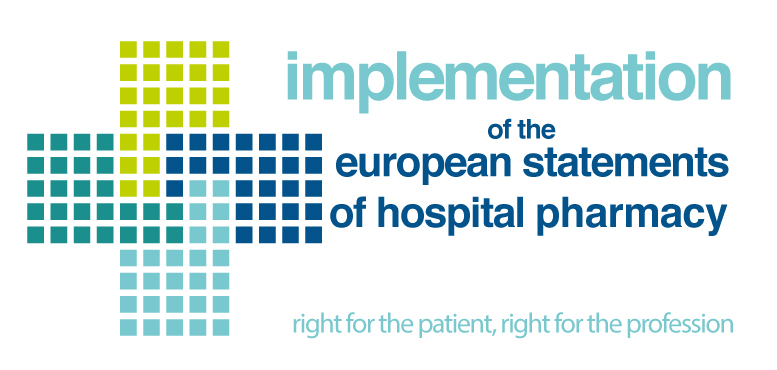
In February 2019 the European Federation of Internal Medicine (EFIM) joined the list of associations that support the 44 European Statements of Hospital Pharmacy. EFIM is the first doctors association that expressed their interest in endorsing the European Statements which represent commonly agreed objectives that every European health system should aim for in the delivery of hospital pharmacy services.
EFIM was formed by bringing together the national societies of internal medicine from each of the European countries, both inside and outside the European Union. EFIM currently comprises 35 member Societies representing over 40,000 internists. The purpose of EFIM is to re-emphasise the importance of Internal Medicine in a world of increasing specialisation.
EFIM is one of the 15 associations that support the European Statements. The 15 supporters include healthcare professional organisations representing pharmacists, nurses and doctors, patient organisations and education providers. The majority of the supporters were involved in the development of the European Statements via an open Delphi consultation.
Learn more about the European Statements HERE
Read about the associations that have endorsed the European Statements HERE
Read up on EMA/HMA talks regarding human and veterinary medicines availability
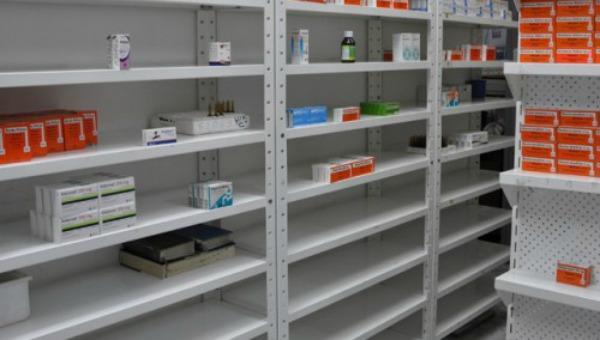
The results of the EMA’s 9th November 2018 stakeholder workshop on the prevention and management of authorised medicines availability have been published. The event gathered representatives of patients, consumers, healthcare professionals, industry and regulators to discuss and contribute to the activities undertaken by the joint HMA/EMA Task Force on the availability of medicines.
The key takeaways coming out of the meeting were the following:
- All stakeholders agree that medicines shortages are a problem of great concern;
- Close collaboration, transparency and public communication between all stakeholders are crucial since quick solutions are not available;
- The pharmaceutical industry plays a crucial role in preventing and managing the issue;
- Improved reporting requires a harmonised EU-wide shortage definition, together with adequate metrics;
- Whether a minimum period for time-out and information on pack sizes should be included in the shortages definition requires further discussion;
- Public communication should be constantly updated and refer to the expected duration of the shortage, any recommended or suitable alternatives and other relevant clinical suggestions.
Among the more palpable results of the discussion, the EMA presented a draft best practice guide for public communication which points to a catalogue format as the ideal tool, as well as a draft EU regulator’s manual on tools and guidance. Also, a proposal for a new EU-level shortages notification system or a single point of reference for better monitoring, prevention, management and communication was shared. Participants agreed that one of the greatest impediments in developing a united EU-approach was the lack of a common definition of shortages.
The HMA/EMA Task Force was set up to develop and coordinate actions to guarantee uninterrupted supply of human and veterinary medicines. This body comprises 3 Thematic Working groups:
- Marketing authorisation;
- Supply chain disruptions;
- Public communication on shortages.
Watch the video recording of the event HERE
Access the event report HERE
EPHA releases study on AMR National Action Plans in Europe
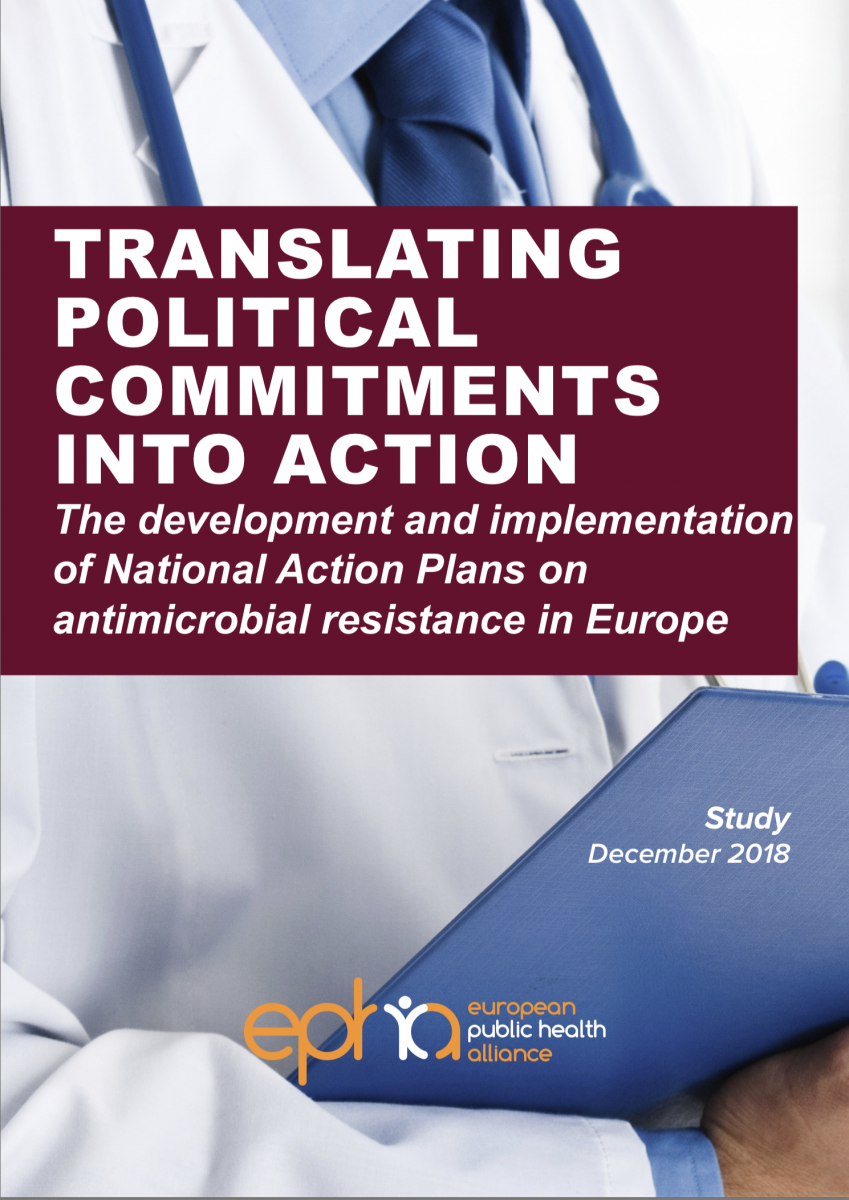
The European Public Health Alliance (EPHA) published a study that analysed and mapped the implementation of National Action Plans (NAPs) or similar initiatives on AMR in different European countries. The report covers 31 European countries, including the EU 28, Iceland, Norway and Switzerland and highlights that good practice examples co-exist alongside poor practices and inaction.
The implementation and development of NAPs is mixed with Southern and Eastern European countries generally trailing behind the rest of Europe. In addition, considerable variations have also been found in relation to the adoption of the European Commission’s “One Health approach”. Only 50% of the analysed countries have considered this approach when drafting their NAPs. Examples of NAPs in the report are presented in accordance with the following thematic areas:
– encompassing a One Health approach;
– including financing estimates and identification of funding sources;
– integrating implementation and evaluation mechanisms; and,
– identifying clear measurable goals.
The report concludes that most NAPs contain elements from the 2016 Council Conclusions on AMR. This is underlined by the fact that 60% of NAPs and initiatives refer to infection prevention and control as well as awareness-raising among professionals and the general public as one of their main priorities. Compliance rates with the WHO’s Global Action Plan on AMR are considerably lower. Only a few countries mention information on financial resources or dedicated funds available for implementation, performance or monitoring indicators as well as time-bound targets in both the human and veterinary sectors.
The study sets out a number of recommendations for policy-makers in the European Commission and within national governments including the introduction of measurable targets, the allocation of adequate funding at EU and national level and the taking action to tackle pharmaceuticals in the environment. Civil society should be engaged in the development and revision of action plans.
Full report available HERE
EDQM call for experts: European Pharmacopoeia network
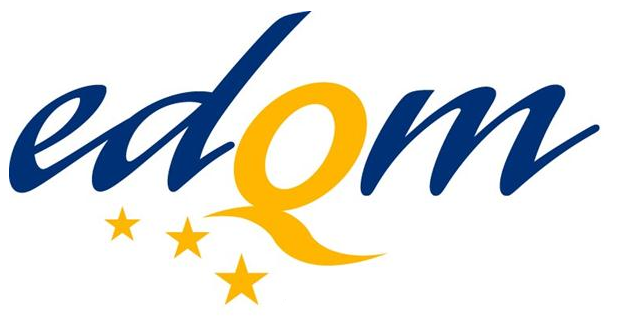
The European Directorate for the Quality of Medicines and Healthcare (EDQM) released a new call for expressions of interest from independent scientific experts to join the European Pharmacopoeia (Ph. Eur.). Professionals from national authorities (e.g. pharmacopoeial authorities, official medicines control laboratories, licensing authorities and inspectorates), the private sector (pharmaceutical or chemical industries), academia, research organisations and other experts are encouraged to apply.
Potential candidates from Ph. Eur. Member States are invited to contact their National Pharmacopoeia Authorities.
Applications will be examined by the Ph. Eur. Commission at its 165th session (26-27 November 2019). The EDQM will inform candidates from non-European Pharmacopoeia member states of the decision of the Commission in December 2019. Candidates from Ph.Eur. member states will receive feed-back from their respective National Pharmacopoeia Authorities.
Read more about the EDQM call HERE
Detailed information on the application process is available HERE
eHealth news: EC Recommendation on European Exchange Format of Electronic Health Records adopted
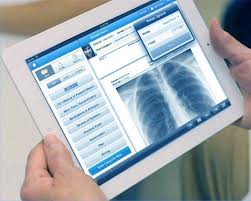
On February 6th, the European Commission (EC) adopted the Recommendation on a European Exchange Format of Electronic Health Records (EHRS) which refers to how electronic health records can be accessed and shared more easily between EU Member States.
The main benefits of using electronic health records are the following:
1. Provision of effective and timely treatment by allowing healthcare professionals immediate access to the patient’s health information (chronic conditions, allergies, intolerances to certain medications) while he/she is travelling inside the EU;
2. Increase quality and ensure continuity of adequate care as citizens move around the EU;
3. Safe data sharing that will support medical research.
4. Increase health systems’ efficiency and sustainability by allowing free and immediate medical data (laboratory or radiology tests) sharing between hospitals.
The EAHP contributed by giving feedback on the EC’s Roadmap at the end of 2018 by pointing out the need to involve hospital pharmacists in the design of common standards, technical specifications of categories of health information, repositories and electronic prescriptions. Also, the need to implement electronic signatures for healthcare professionals and ensure data interoperability and compliance to standards was underlined.
The EC’s Recommendation is available HERE.
The EC’s Roadmap is available HERE
A factsheet on what the EHRS means for health professionals, citizens and public administrators via realistic scenarios is available HERE
Update from the European Medicines Agency on fenspiride medicines
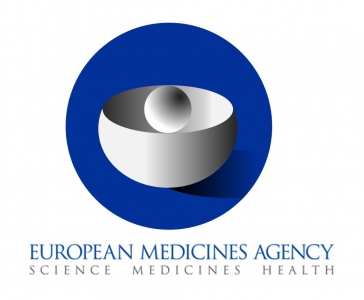 In mid-February, the Pharmacovigilance Risk Assessment Committee (PRAC) of the European Medicines Agency (EMA) announced an EU-wide suspension of fenspiride medicines, used in children and adults to relieve cough caused by lung diseases.
In mid-February, the Pharmacovigilance Risk Assessment Committee (PRAC) of the European Medicines Agency (EMA) announced an EU-wide suspension of fenspiride medicines, used in children and adults to relieve cough caused by lung diseases.
The suspension is a precautionary measure to protect patients while the PRAC reviews the risk of QT prolongation and torsades de pointes (abnormalities of the heart’s electrical activity that may lead to heart rhythm disturbances).
Cases of heart rhythm problems had been reported in patients who had taken these medicines in the past. To explore the potential link between fenspiride and these heart rhythm problems, animal studies were carried out which now show that fenspiride has the potential to prolong QT in humans.
The PRAC will now examine all the available evidence and make recommendations on the action to be taken on marketing authorisations for fenspiride medicines across the EU. Once the review is concluded, EMA will communicate further and provide updated guidance to patients and healthcare professionals.
Further information, including specific information for patients and healthcare professionals, is available HERE
EJHP: Council of Europe Resolution CM/Res(2016)2: a major contribution to patient safety from reconstituted injectable medicines?
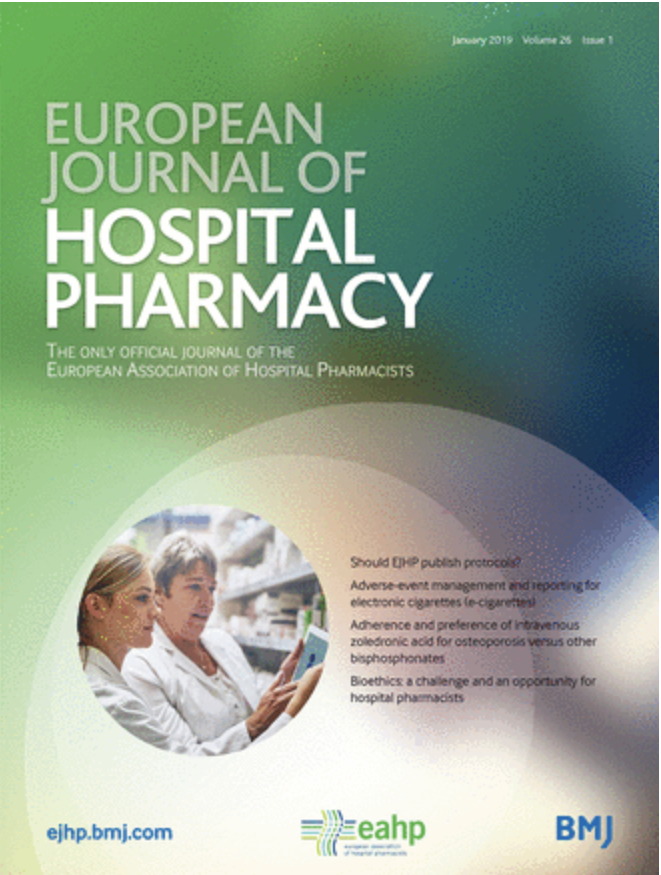
The online first edition of the European Journal of Hospital Pharmacy (EJHP) recently published an original article on the Council of Europe Resolution on good reconstitution practices in health care establishments for medicinal products for parenteral use (CM/Res(2016)2). The article summarises the rationale behind the Resolution, its drafting process and main chapters. The Resolution aims at risk reduction in healthcare establishments and it is a major contribution, at the international level, to patient safety from reconstituted injectable medicines.
Read more HERE
[EAHP Statement Corner]
Meet the Statement Implementation team in Barcelona
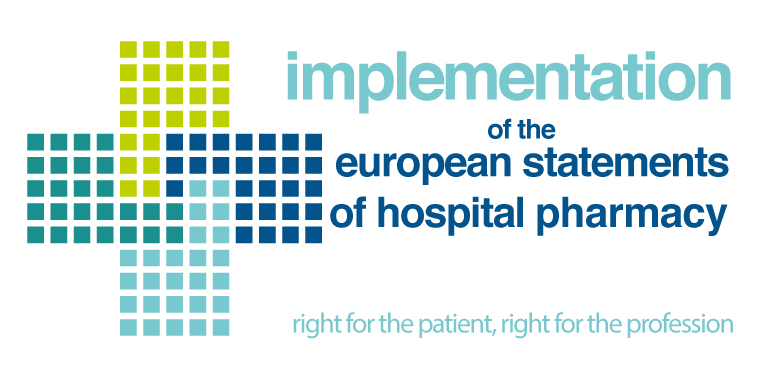
EAHP’s Statement Implementation team will be represented at the Associations annual Congress hosted from 27thto 29thMarch 2019 in Barcelona, Spain. Make sure to sign up for the Congress and drop by the EAHP booth! The Statement Implementation team will answer all of your questions related to the 44 European Statements of Hospital Pharmacy, the self-assessment tool and the Statement Implementation Learning Collaborative Centres (SILCC).
Register for EAHP’s 24th Congress HERE
————————————————————————————————

Consultations
Survey on patients opinion about drug shortages
COST Action CA 15105 on medicines shortages invites you to participate in a qualitative study regarding patients’ perspective about medicine shortages during hospital stay. Hospital pharmacists are encouraged to question interested patients who are willing to share their experience with medicines shortages. Questions in relation to this survey activity can be address by email to Darija Kuruc Poje (darijakuruc21@gmail.com).
Deadline – 1st March 2019
Access the survey HERE
Public consultation on EMA Regulatory Science to 2025
The purpose of this public consultation is to seek views from EMA’s stakeholders, partners and the general public on EMA’s proposed strategy on Regulatory Science to 2025 and whether it meets stakeholders’ needs. By highlighting where stakeholders see the need as greatest, participants have the opportunity to jointly shape a vision for regulatory science that will in turn feed into the wider EU network strategy in the period 2020-25.
Deadline – 30th June 2019
Access consultation HERE
EMA – Guideline on the evaluation of medicinal products indicated for treatment of bacterial infections
The EMA has launched a consultation on the revision of its guideline on the evaluation of human medicines indicated for the treatment of bacterial infections. Antimicrobial resistance is a global public health problem. Regulators in the European Union, the United States and Japan have had extensive discussions over the last few years to explore and agree how to align as much as possible their respective data requirements so that medicine developers can design clinical trials that meet the evidence needs of multiple regulatory agencies. The revised guidance reflects the outcome of these discussions.
Deadline – 31st July 2019
Access consultation HERE
EMA – Public consultation on key principles for the electronic product information of EU medicines
The European Medicines Agency (EMA), together with the European Commission (EC), has launched a public consultation on draft key principles which will form the basis on which the electronic product information (ePI) for human medicines will be developed and used throughout the European Union. The rationale behind the ePI is that digital platforms open additional possibilities to disseminate the PI electronically. This can address some of the current limitations and better meet patients’ and healthcare professionals’ needs for accessible, up-to-date information on medicines. The draft key principles are the result of extensive discussions and consultations carried out by EMA, the Heads of Medicines Agencies (HMA) and the EC throughout 2018, with representatives of all stakeholder groups.
Deadline – 31st July 2019
Access consultation HERE





























 In mid-February, the Pharmacovigilance Risk Assessment Committee (PRAC) of the European Medicines Agency (EMA) announced an EU-wide suspension of fenspiride medicines, used in children and adults to relieve cough caused by lung diseases.
In mid-February, the Pharmacovigilance Risk Assessment Committee (PRAC) of the European Medicines Agency (EMA) announced an EU-wide suspension of fenspiride medicines, used in children and adults to relieve cough caused by lung diseases.


